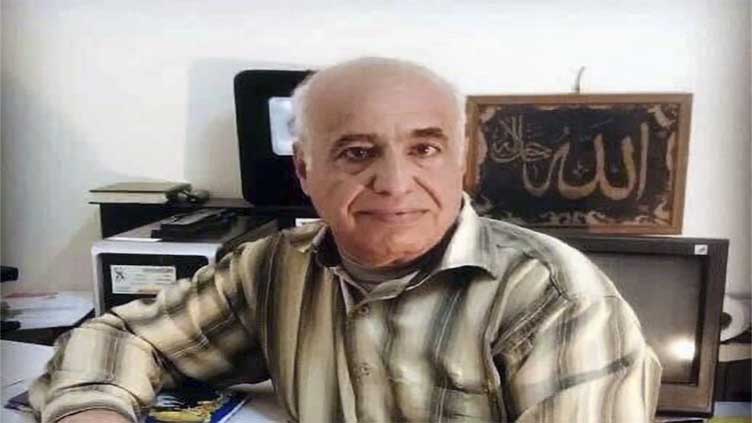Palestinian man who fled Lebanon seeking safety in Libya was killed with his family by floods

World
Palestinian man who fled Lebanon seeking safety in Libya was killed with his family by floods
BEIRUT (AP) — At the height of Lebanon’s 15-year civil war in the late 1980s, Saleh Ali Sariyeh decided to leave the Palestinian refugee camp where he had been living and move to Libya in search of safety and a better future.
On Monday, the 62-year-old architect was killed along with his wife and two daughters in Libya’s coastal city of Derna, when their home was washed away by flooding that devastated the city. The floods killed more than 5,000 people and thousands remain missing days after the floods.
Mediterranean storm Daniel caused deadly flooding in many towns of eastern Libya, but the worst-hit was Derna. As the storm pounded the coastal city of about 90,000 on Sunday, residents said they heard loud explosions when the dams outside the city collapsed. Floodwaters washed down Wadi Derna, a river running from the mountains through the city and into the sea.
“We lost contact with them after the storm,” said Sariyeh’s younger brother Mohammed, speaking by telephone from the southern port city of Sidon. The Sariyeh family had lived in the Palestinian refugee camp of Ein el-Hilweh near Sidon where intense fighting recently between members of Palestinian President Mahmoud Abbas’ Fatah group and militant Islamic factions left dozens of people dead or wounded.
Mohammed Sariyeh said after they lost contact with the family in Derna, they started following the news through social media and a day later they were able to contact people who lived nearby. They gave them information about the tragedy that hit the city and killed the family.
Asked if their building was washed away, Mohammed Sariyeh said “the whole neighborhood not only the building. The lived close to the valley and close the dam.”
Derna lies on a narrow coastal plain on the Mediterranean Sea under steep mountains running along the coast. Only two roads from the south remain usable, and they involve a long, winding route through the mountains.
Mohammed Sariyeh said his brother left Lebanon in the late 1980s and had been residing in Derna since then until his death along with his wife, Sanaa Jammal, and their two daughters. The daughters, Walaa, 27, a pediatrician, and Hoda, 25, who worked in information technology, were both born and raised in Libya.
Since leaving Lebanon more than three decades ago, Sariyeh’s life was centered in Libya and he used to visit Lebanon once every few years. Since Libya’s conflict began in 2011, the family stayed even when Derna fell under the control of the Islamic State group in 2015, said the victim’s nephew, also named Mohammed Sariyeh.
Sariyeh said a mass funeral was held Monday and included the family of his brother. He added that people are being laid to rest quickly because of the large number of victims and electricity cuts making it difficult to keep the bodies.
“Once they identify the people they bury them. It is a disaster-stricken area,” he said.
Ossama Ali, a spokesman for the Ambulance and Emergency Center in eastern Libya, said at least 5,100 deaths were recorded in Derna, along with around 100 others elsewhere in eastern Libya. More than 7,000 people were injured in the city, most receiving treatment in field hospitals that authorities and aid agencies set up. About 30,000 were displaced in Derna.
The number of deaths is likely to increase since search and rescue teams are still collecting bodies from the streets, buildings and the sea, he said.
The victim’s nephew said that because of the ongoing fighting in Ein el-Hilweh, the family in Lebanon will not be receiving condolences in the camp. They plan to hold a gathering on Tuesday outside the camp in Sidon to mourn the death of their loved ones, he said.

